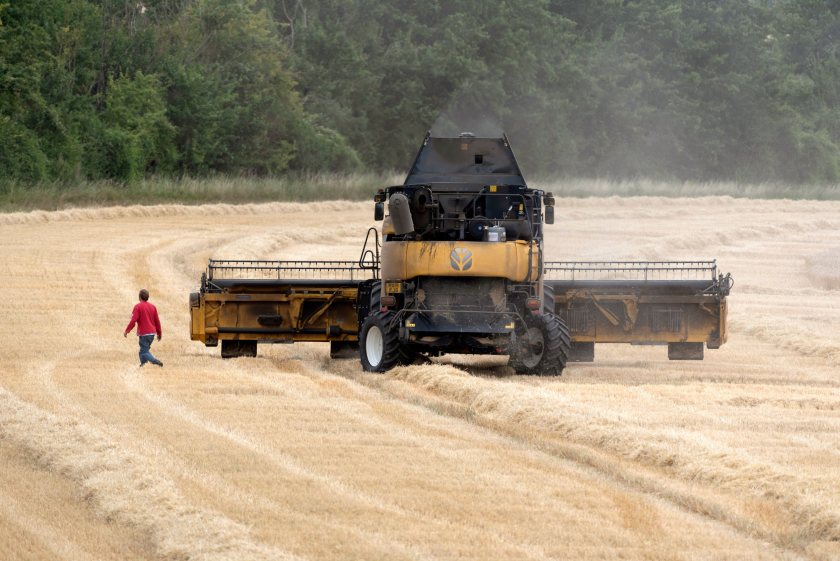
England has suffered its second worst harvest on record after record breaking wet weather last winter and recent downpours, new figures by Defra show.
Production estimates released today (10 October) shows the country's second worst harvest since 1983, leaving many farmers unable to drill crops.
Records have tumbled again in parts of England in the last few weeks alone, leaving many farmers fearing a repeat for next year's harvest.
Defra's figures show that the wheat harvest is estimated to be 10m tonnes, or 21% down on 2023.
Winter barley is estimated to be 26% down on last year, while the oilseed rape harvest is estimated to be down 32%.
Compared to the five year average, the oilseed rape harvest for 2024 is down by a huge 38%.
In total, the harvest for wheat, winter and spring barley, oats and oilseed rape is down by 15% on 2023 and 18% on the five year average.
Increases in spring barley and oat production have failed to offset major declines in the other crops, Defra's figures show.
Tom Lancaster, farming analyst at the Energy and Climate Intelligence Unit (ECIU), said this year’s harvest was a 'shocker'.
He said: "Whilst shoppers have been partly insulated by imports picking up some of the slack, Britain’s farmers have borne the brunt of the second worst harvest on record.
“It is clear that climate change is the biggest threat to UK food security - these impacts are only going to get worse until we reduce our emissions.
“At the budget this month the new government has the opportunity to invest in more sustainable farming that would build our food security resilience to these extremes.
"The alternative is to allow the effects of these climate impacts to worsen in the years ahead.”
For many farmers, the drilling season this year has got off to an even worse start than 2023 following record breaking rain across much of southern, central and eastern areas.
Defra’s new data broadly reflects earlier estimates by the ECIU and is likely to leave many farmers out of pocket.
Based on current prices, the ECIU estimates that the shortfall in production this year compared to 2023 could see farmers lose £600m in revenue on just the five crops covered by this data.
Colin Chappell, an arable farmer in Lincolnshire, said his business was now 'on a knife edge' after seeing almost two inches of rain within 36 hours just last week.
He warned that some farming businesses in southern England had lost their crops for the second year in a row.
"Many will now be relying on spring wheat once again this year, which only produces about half as much as winter wheat.
"We're getting into a situation where autumn planting is becoming unviable due to flooding and spring planting is risky because of drought. It is causing a lot of nervousness and uncertainty.
"Farmers are going to need support to see them through this and ensure they are resilient in the future," Mr Chappell said.
It comes after calls were recently made for the government to boost the agriculture budget to £5.6 billion, as MPs debated the state of the farming industry.
The new Labour government was urged by industry bodies to deliver an increased agriculture budget as farmer confidence sits at its lowest level since records began.
